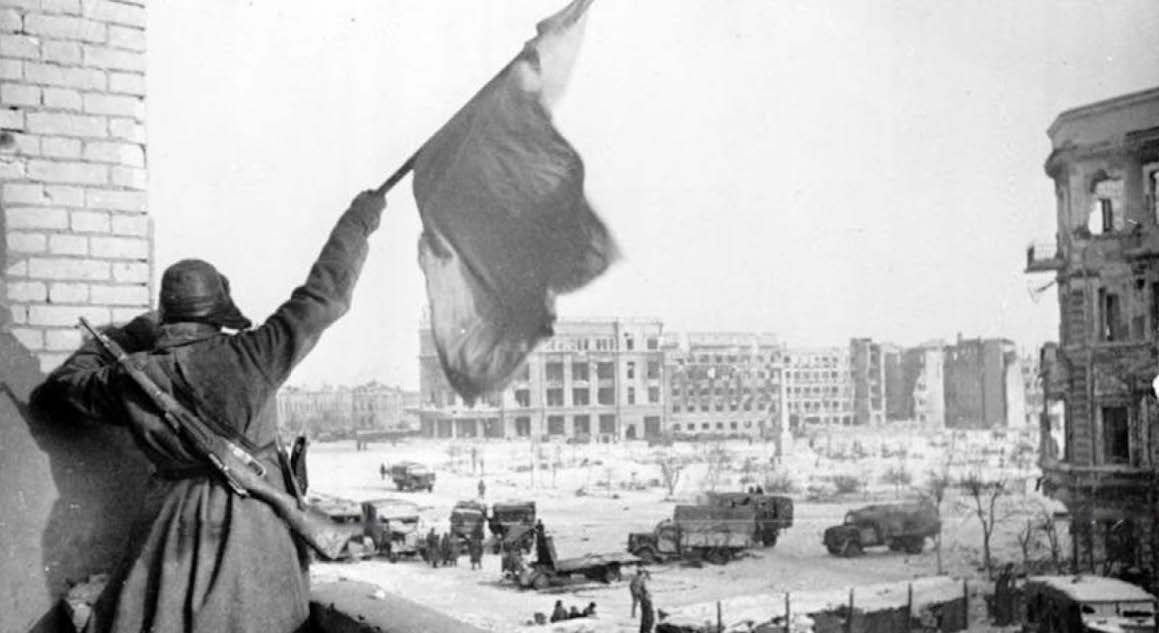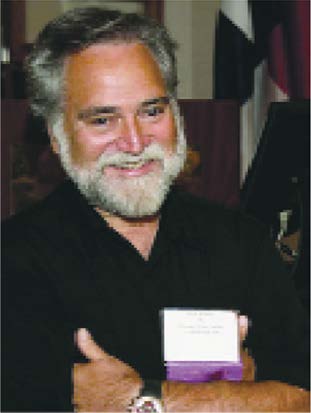ANCORA IMPARO
RICK RADER, MD ■ EDITOR-IN-CHIEF

Order 227: "Not a Step Back"
The goal of this article is certainly not to provide any positivity to the cruel regime of Stalin, but to remind the current crop of disability rights activists that the world is watching and waiting to see if you understand, respect and acknowledge your role in the "ongoing" movement.
My maternal grandfather, Morris, was an army deserter. A proud army deserter.
He was conscripted into the Russian army and, realizing the growing unrest would eventually lead to the creation of the world's first socialist state, he fled at the outbreak of the Russian Revolution of 1917. He loved, flourished, and embraced the American democratic way of life while agonizing over the terror that the dictator Joseph Stalin brought to the Russian people.
Stalin offered, "The death of one man is a tragedy. The death of millions is a statistic." While it can be considered an astute observation, bringing the stark reality of personalizing tragedy, it is also reflective of someone who knew a thing or two about statistics. Estimates of the number of deaths attributable to Stalin vary widely, but historians estimated that the numbers killed by Stalin's regime reached 20 million or higher. These reflected executions, assassinations, Gulag deaths and labor colonies, deportations, the famines of 1932-33 and 1946-47, forced settlements, and massacres.
I shiver at the tales of how Stalin's cruelty impacted on the lives of millions of Soviet citizens and how entire families never recovered from his reign of terror.
With all the champions that have actually impacted on the disability rights movement, why on earth would I select this despot to "inspire" a message that I think is noteworthy and applicable to moving forward with inclusion, acceptance, and an appreciation for neurodiversity?
Like most dictators, Stalin ruled by issuing thousands of orders. These orders dictated behaviors, expectations, rules, regulations, mandates, consequences, codes, prohibitions, and ordinances.
In 1943, Stalin issues Order No. 227, an order that, with some explanations, could serve as a reminder to the disability community.
Order No. 227 came to be known as the "Not one step backward" order.
During World War II, early German successes against Russia had emboldened Hitler in his goal of taking control of two of Russia's most significant strongholds, the cities of Leningrad and Stalingrad. Things looked bleak for Soviet survival. Stalin needed to remind the Soviet citizens, their military and indeed the soul of the country what was expected of them. Basically, Stalin wrote that retreat is defeat. He announced that the enemy had already taken most of Russia's strategic regions and cities. He cited that, in some instances, the Soviet troops had given into panic and abandoned several cities without offering any serious defense and without waiting for Moscow's orders. Part of Order No. 227 issued the following "Every officer, every soldier and political worker must understand that our resources are not limitless. The territory of the Soviet state is not just desert, it is people – workers, peasants, intellectuals, our fathers, mothers, wives, brothers, and children."
Historian Catherine Merridale, writing in The History Reader adds, Stalin's remedy was embodied in a new slogan, "Not a step back!" which became the army's watchword. Every man was told to fight until his final drop of blood.
Of particular The Soviet Union played an instrumental part in defeating the Germans and ending the War in 1945. O interest is the fact that at Stalin's insistence, Order No. 227 was never printed for general distribution. The order was conveyed by word of mouth to every man and woman in the army.
Stalin instructed that "your reports must be pithy, brief, clear, and concrete. There must not be a single person in the armed forces who is not familiar with Comrade Stalin's order."
Stalin's order." Order No. 227 was not made public until 1988, when it was printed as part of the policy of "glasnost," or openness.
And while you might think this was a draconian threat to punish soldiers who abandoned their position, most of the rules for military conduct are abundantly clear regarding the consequences for soldiers who retreat without or against orders from their commanders. In fact, Order No. 227 was simply a re-statement of what had been an accepted part of military decorum since ancient warfare principles were established by the Greek and Roman empires.
Order No. 227 resonated with the Soviet troops. Most of them reported that it was a needed and important reminder. It was found that it provided a welcome relief and helped to fortify their resolve.
The Soviet Union played an instrumental part in defeating the Germans and ending the War in 1945.
Order No. 227 provides a message for the ongoing disability rights movement. "Ongoing" is the key "Pioneers of the disability rights movement understood the consequences of retreating and relinquishing the ground they heroically fought for." and operative word. While the world for people with disabilities has reached major milestones, and opportunities have been provided for individuals against the backdrop of complex, lifelong and once thought insurmountable challenges, we are still in the "ongoing" phase.
Unfortunately, many of the pioneers and champions of the disability rights move ment are no longer at their posts. They lived with Order No. 227 and understood the consequences of retreating and relinquishing the ground they heroically fought for. They woke up every day understanding what "Not a step back!" meant to them, the people they represented, and the increasing number of future generations who needed them on the front lines.
The goal of this article is certainly not to provide any positivity to the cruel regime of Stalin, but to remind the current crop of disability rights activists that the world is watching and waiting to see if you understand, respect and acknowledge your role in the "ongoing" movement.
From time to time, we all need a reminder of why we are here and what still needs to be done. The troops need to be reminded of our history, our goals, and the consequences of not observing Order No. 227.•

ANCORA IMPARO In his 87th year, the artist Michelangelo (1475 -1564) is believed to have said "Ancora imparo" (I am still learning). Hence, the name for my monthly observations and comments. – Rick Rader, MD, Editor-in-Chief, EP Magazine Director, Morton J. Kent Habilitation Center Orange Grove Center, Chattanooga, TN